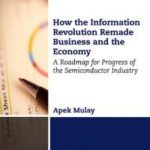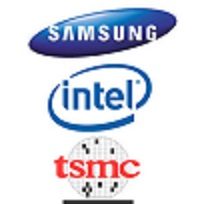I recently read an interesting article “Intel’s cost cuts could give rivals higher ground: analysts” where the analysis claims that Intel Corp’s move to delay the launch of its next generation chip technology to 2017 may see the company lose ground to rivals Taiwan Semiconductor Manufacturing Co and Samsung Electronics Co Ltd.
While Intel Inc. is in trouble due to failure of IDM business model’s compared to Fabless-Foundry business model, I do not think that TSMC and Samsung Electronics can keep investing in a global economy suffering from a poor consumer demand. Whether it is US economy, Chinese economy or European economy, none of the major economies in the world are really doing that well.
As I had forecasted, We recently had crash of Chinese stock market and also facing unending problems of European economy. Recently, One of top Industrialists in India, Rahul Bajaj, questioned the growth estimates of Indian economy. As quoted in that article,
“I am neither an economist nor a statistician. However, as an industrialist who has run a business for several decades and observed others who manage different enterprises across many sectors, I find it challenging to reconcile 7.5 per cent growth in GVA with what one sees in industry today,” Bajaj said in the company’s Annual Report for 2014-15.
So, With so much global uncertainty, it is obvious to see Intel cut costs and delay introduction of new technology node due to poor economic demand. A poor economic demand would not ensure a good Return on Investments (RoI). Does it mean that TSMC and Samsung Electronics would be successful in ensuring a good RoI when they launch their 10 nm chip nodes in late 2016 and early 2017, respectively. Given the failure of macroeconomic economic policies around the globe, the consumer purchasing power of majority around the globe has diminished.
As mentioned in my first book “Mass Capitalism: A Blueprint for Economic Revival” as well as explained further in my upcoming book “Sustaining Moore’s Law: Uncertainty Leading to a Certainty of IoT Revolution“, the progress of Moore’s Law has essentially been the progress of supply-side economics. There has been “little” to “no incentive” to boost consumer demand in the US as well as global economy besides luring consumers into an unsustainable debt. Without a healthy consumer demand for the latest and greatest electronic products, any further investments towards the progress of Moore’s Law are bound to provide a poor return on investments for the foundries.
As I forecast, By October 2015 when US stock markets crash due to macroeconomic cycles resulting from unsustainable trade and budget deficits, it is really questionable whether TSMC and Samsung can continue with their launch of 10 nm chip nodes in late 2016 and early 2017 respectively, unless global semiconductor industry adopts true free market reforms where the real job creators in the economy are not only producers but also consumers. Hence, Intel Inc. is in trouble but so are its rivals TSMC and Samsung.


Recent Comments